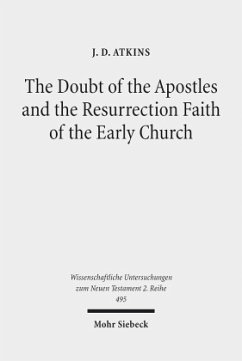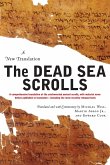In this work, J. D. Atkins employs a combination of reception-history analysis and redaction criticism to challenge modern theories that Luke 24 and John 20 are apologetic responses to incipient docetism. He subjects second-century parallels used to support these theories to the same redaction-critical scrutiny as the Gospels and finds that the editorial and apologetic concerns of the evangelists differ fundamentally from those of antidocetic writers: neither Luke nor John aims to prove the physicality of the resurrection. Both instead draw attention to the fulfilment of prophecy. The author also argues that the apostles' doubt was not an apologetic device and that the bodily demonstrations of touching and eating predate docetism. Early docetists appeal to the Gospels as apostolic testimony but insist on a non-literal hermeneutic in which Christ performs physical actions "in appearance only."
Bitte wählen Sie Ihr Anliegen aus.
Rechnungen
Retourenschein anfordern
Bestellstatus
Storno






